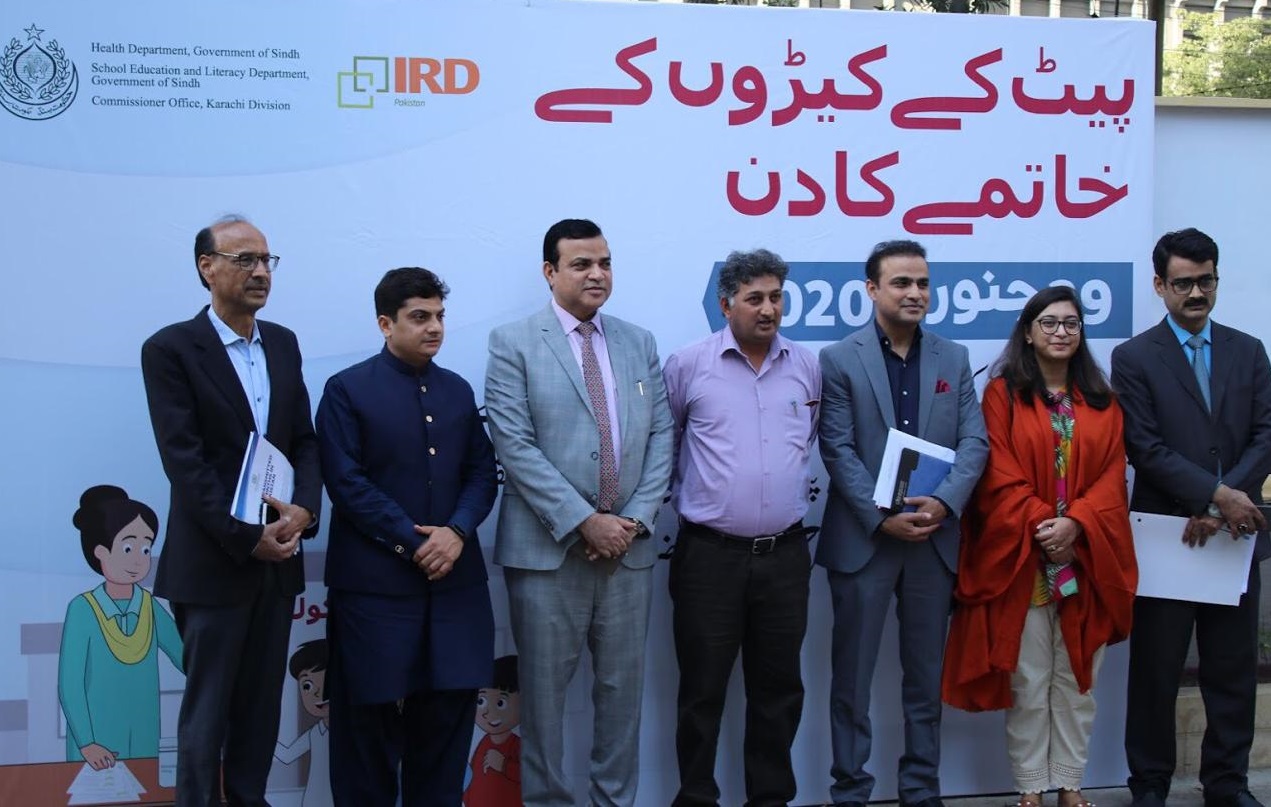Karachi: The Secretary of Health, Zahid Ali Abbassi, launched the Sindh Deworming Initiative’s first mass deworming campaign in Karachi. The school-based deworming program aims to treat over 500,000 school-age children in 2,600 select government and private schools, as well as in 145 health facilities across the six districts of Karachi on 29th January 2020. All children enrolled in classes 1-10 will be encouraged to access treatment at a nearby school or any health facility displaying a banner on deworming day, as well as out-of-school children aged 5 -14 years. The treatment will be provided free of charge.
Zahid Ali Abbassi, the chief guest of launch event, remarked that “annual mass deworming is very important for our children, as it will ensure their improved physical and cognitive growth, resistance to other infections and improved school performance. Moreover, mass deworming is in direct support of and positively impacts Pakistan’s progression toward achieving Sustainable Development Goals as well as the Government of Pakistan’s top health priorities, reducing undernutrition and anemia. Deworming is a quick, easy, and safe measure to better the health and future of our children!” Additional Commissioner-II Karachi Dr.Waqas,Secretary Health Zahid Ali Abbasi, Director Schools Sindh Education and Literacy Department, attended the launch and urged parents and guardians to send their children to the nearest government,private school or health facility displaying a banner on 29th January.
The World Health Organization (WHO) estimates that nearly 1 in 4 of the world’s population, are infected globally with intestinal worms, also known as soil-transmitted helminths, with over 835 million children in need of treatment. These infections result from poor sanitation and hygiene conditions and tend to have the highest prevalence in school-age children. A national survey conducted in 2016 found that approximately 17 million school-age children across Pakistan, including approximately 4.6 million children in Sindh, are in need of regular deworming.
Zahid Ali Abbassi further stated, “It is the mandate of the Health Department Government of Sindh to help the people of Pakistan to maintain and improve their health and to make our population among the healthiest in the region. Since children account for one-third of Pakistan’s population, we open-heartedly welcome the school-based deworming program in Pakistan and in Sindh, as this will not only improve the health of our children but will also benefit our society as a whole.
Director Schools Education Karachi, School Education and Literacy Education Department, Hamid Karim demonstrated his pride for the deworming program which targets both enrolled and out-of-school children, ensuring no school-age child is left behind. He stated, “benefits of school-based deworming are demonstrated through a rigorous body of evidence proving that mass deworming improves both health and academic performance of school-age children.”
Deworming day is set to be conducted on 29th January 2020 for all children enrolled in classes 1 – 10 and out-of-school, ages 5 – 14. A deworming week will also commence from 30th January 2020 to 7th February 2020 in selected public health facilities across Karachi to ensure wider access.
The school-based deworming program is coordinated and led by the Ministry of Health Government of Sindh and implemented in partnership with the Secretary School Education and Literacy Education Department and Commissioner Office. IRD Pakistan, Evidence Action, and Indus Health Network provide technical assistance to Federal and Provincial Governments to ensure high-quality program delivery. Deworming drugs (mebendazole 500 mg) are donated through the WHO drug donation program. The program is funded by Dubai Cares, part of Mohammed bin Rashid Al Maktoum Global Initiatives, and donors following the recommendations of GiveWell.

